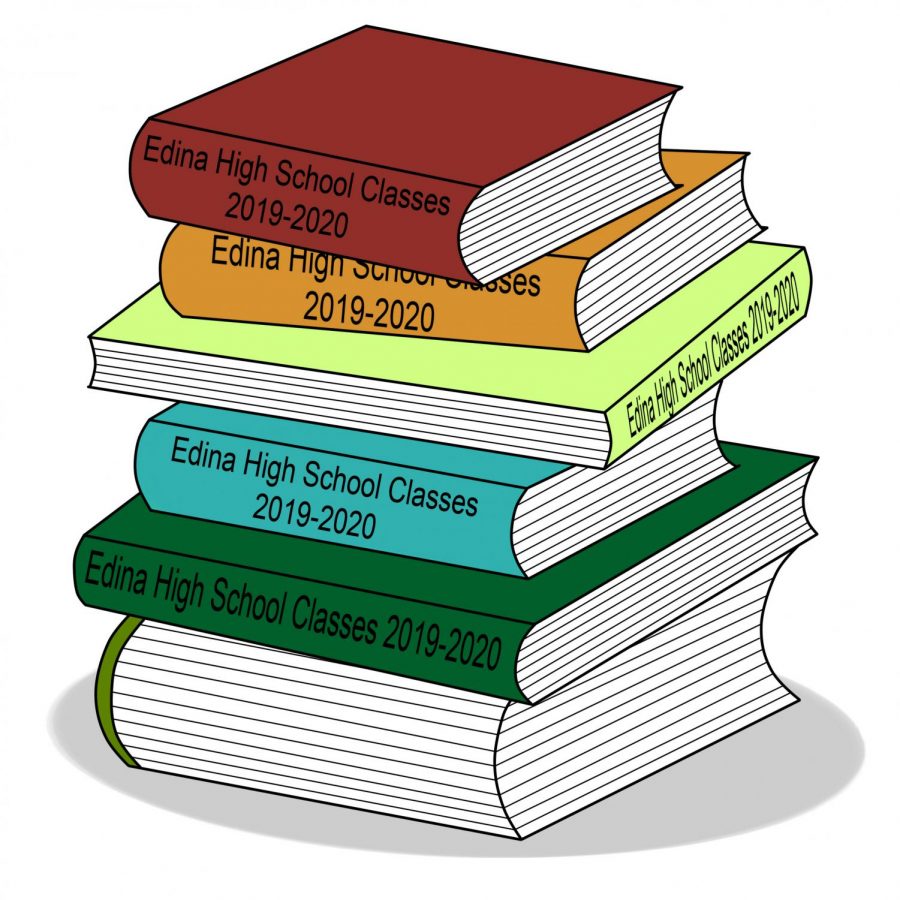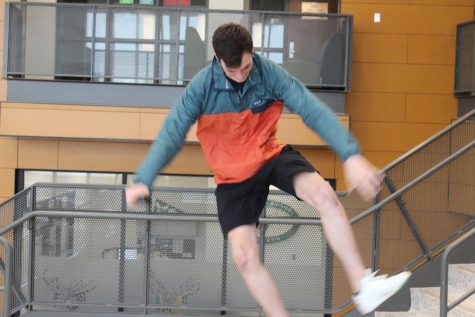EHS offers unique new classes for the 2019-2020 year, despite budget cuts
March 7, 2019
With the next school year approaching slowly but steadily, students are faced with the annual decision of exactly what sort of courses should they register for. This upcoming year’s course catalog is ripe with new classes for students to push themselves even further, and maybe even have some fun along the way.
Capstone: Fine Arts
Who can take it? Any rising junior or senior with prior knowledge in any of the arts disciplines.
How long is it? One semester
Credit? Fine Arts Elective
Out of class work? Periodically
From the course catalog: Capstone: Fine Arts is an advanced‐level, one semester course where fine arts students from multiple disciplines can create and put into motion original artistic projects. Students will be given guidance, time and space to create, write, compose, choreograph, and refine their method of artistic discovery. On selected dates each week, students from all projects will gather as a group to participate in informal share‐outs. At the end of the semester, all students and groups will present a showcase of their work to celebrate their experiences. All fine arts students with proficiency in their craft may participate (instrumental and vocal music, theater, dance, studio art). Instrumental and studio art students must supply their own instrument and/ or materials for this class based on their project needs. Time and space in the art studio and or performance hall will be scheduled on a weekly basis depending on availability.
Digital Photography III
Who can take it? Any rising sophomore, junior, or senior that has previously taken Digital Photography I, and II.
How long is it? One Semester
Credit? Fine Arts Elective
Out of class work? Periodically
Fee? $20.00
From the course catalog: Students will build on the knowledge of skills and techniques learned in Digital Photography II to create theme based work. Students will create digital photographs through an emphasis on individual ideas, exploration, and advanced experimental editing.
Global Business Studies
Who can take it? Any rising sophomore, junior, or senior.
How long is it? One Semester
Credit? Elective
Out of class work? Periodically
From the course catalog: This course provides an opportunity to broaden your language background with your future career. This class will examine the international trading environment by providing theoretical and practical case studies and projects that specifically explore the following economic regions: Latin America (In‐Depth), China, France, and Spain.
Web Page Coding I
Who can take it? Any rising freshman, sophomore, junior, or senior.
How long is it? One Semester
Credit? Elective
Out of class work? Periodically
From the course catalog: Using today’s web standard for coding (HTML) students will master a variety of web design concepts to create powerful websites. Students will format websites using cascading style sheets (CSS), tables, forms, and JavaScript. Students will design websites that are practical to the business world.
Web Page Coding II
Who can take it? Any rising freshman, sophomore, junior, or senior who had previously taken Web Page Coding I.
How long is it? One Semester
Credit? Elective
Out of class work? Periodically
From the course catalog: Using today’s web standard for coding (HTML) students will master a variety of advanced web design concepts to create powerful websites. Students will learn advanced HTML to further their skills to format websites using JavaScript. Students will also learn and apply website analytics to their website.
Cybersecurity
Who can take it? Any rising sophomore, junior, or senior.
How long is it? One Semester
Credit? Elective
Out of class work? Periodically
From the course catalog: Whether seeking a career in the growing field of cybersecurity or learning to defend their own personal data or a company’s data, students in Cybersecurity establish an ethical code of conduct while learning to defend data in today’s complex cyber world.
Child Psychology II
Who can take it? Any rising sophomore, junior, or senior.
How long is it? One Semester
Credit? No credit
Out of class work? Minimal
From the course catalog: This course is for students who have already taken Child Psychology and want to delve deeper into its content. We will focus on early childhood education and related careers that involve working with children from birth to age 5. Course topics include: career paths in early childhood education; the history, theory, and foundations of early childhood education; principles of child development and developmental theories; developmentally appropriate activities for young children; developmentally appropriate practices of guidance and discipline. Students will help lead the preschool lab and will also participate in a service learning experience at Edina’s Early Learning Center (students will help in one of the classrooms at the ELC once per week throughout the semester during our block period).
Intro to Education
Who can take it? Any rising junior or senior.
How long is it? One Semester
Credit? Elective
Out of class work? Minimal
From the course catalog: This course is designed to explore the development of school-age children. The areas of study will include social, emotional, physical and intellectual development, special needs, families, teaching, and other education-related topics. This course provides a hands-on learning experience at an elementary school. Format: Three class periods per week in the traditional classroom and 2 class periods per week in elementary school. Students must provide transportation. Potential college: Normandale Community College.
Intermediate Algebra
Who can take it? Any rising freshman, sophomore, junior, or senior.
How long is it? Full Year
Credit? Math
Out of class work? Daily
From the course catalog: This course extends and builds on the concepts from Algebra I. Topics introduced and extended include: linear and absolute value functions, systems of linear equations and inequalities, exponents and exponential functions, polynomials and factoring, quadratic functions, solving quadratic functions, manipulating functions and statistics.
Intermediate Algebra Bridge
Who can take it? Any rising freshman, sophomore, junior, or senior.
How long is it? Full year
Credit? Math
Out of class work? Daily
From the course catalog: This course is for students who struggled in Algebra last year (received a grade of C‐ to D‐). This class will reteach and review the standards from Algebra 1 while also supporting students in their current Intermediate Algebra class. This is for students who have a strong desire to build their math foundation and want to work hard to fill gaps they have in their learning. The course can be taken as a 7th class in place of a student prep or it can be taken as a 6th class in their schedule
Blended Health
Who can take it? Any rising freshman, sophomore, junior, or senior.
How long is it? One Semester
Credit? Health
Out of class work? Daily
From the course catalog: This course is designed for students to gain knowledge and develop attitudes to make informed decisions that enhance individual, family, and community health. This course is designed to meet the needs of students who are self‐ motivated in the health curriculum by offering a blended (both online and traditional classroom) curriculum. Learners
are required to meet daily at the beginning of the semester. As the semester progresses, we scale back to blending 1‐2 hour class periods a week.




